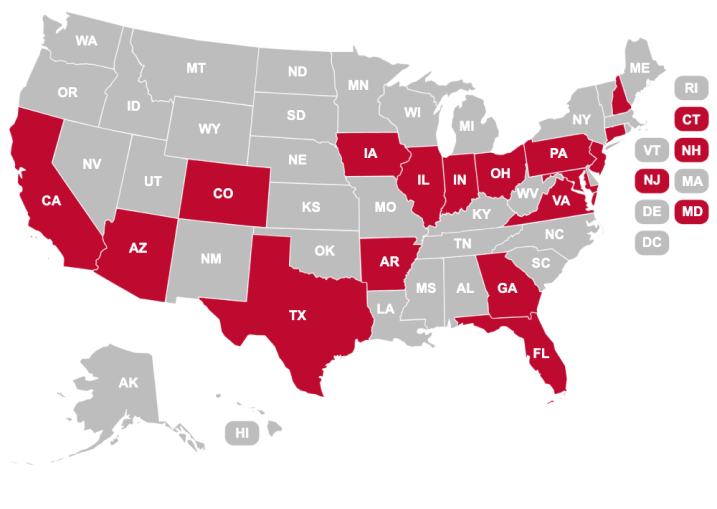Do Nurses Get Pensions? Everything You Need to Know

Do nurses get pensions? Do these healthcare heroes have the financial security they need for a peaceful retirement? If you are working as a nurse or planning to become a nurse, you may be wondering this. Well, the answer to this is yes but not always. So, under what conditions can they enjoy a pension? And what type of pension plans are there for them. Find out the answer to these and everything you need to know about nurse pensions in this blog.
- Pension provides nurses with the financial support they need post-retirement
- Nurses who are working government jobs, members of a union, or employed at large corporations are more likely to avail of pension benefits.
- Nurses can receive defined-benefit or defined-contribution plans, depending on their employer and funding methods.
- For a stable retirement, nurse pensions help with achieving financial goals, long-term planning, and healthcare coverage
Do Nurses Get Pensions and Why They Are Important?
Just like any working individual, pension is important for nurses too. After all, nurses work so hard all their lives; they deserve a peaceful retirement too. Moreover, a nurse pension is a retirement plan specifically designed for nurses. It provides a stream of income that ensures thorough financial support to nurses when they are no longer working.
In this case (or any case), nurses must have a well-defined plan that takes them toward a peaceful post-retirement life. This is the reason why having a pension is important. And it’s always smart to plan ahead. So, if you are in the early years of your retirement, start planning now! Remember, its is never too late to start planning for retirement. Haven’t started out yet? Don’t delay; begin your retirement planning now.
Also read - Teacher Salaries in Milwaukee Wisconsin
What Nurse Roles Are Eligible for Pension Plans?
Wondering do nurses get a pension? And which one of them is actually eligible? Well, there are several nurse roles serving in different healthcare organizations that are eligible for pension, including:
- Registered Nurses
- Licensed Practical Nurses
- Clinical Nurse Specialists
- Nurse Anesthetics
“Most hospitals provide pensions to their nurses. However, despite working dedicatedly, they can still be ineligible for pension – depending on various factors”. – National Library of Medicine
Their eligibility for pension plans depends on different factors such as the type of healthcare facility, employment status, years of service, etc. Both public and private healthcare institutions may offer pension plans as part of their benefits package. After all, it is important to support the financial well-being of their nursing staff upon retirement.
• Nurses Working for Government
Nurses who work for federal, state, or local government are almost always eligible for a pension. You should know that government nursing job positions include school nurses, public hospital staff, and military nurses. Moreover, these roles come with comprehensive benefit packages, including pension plans. One of the perks government nursing jobs come with is pension schemes.
• Member of a Nurse Union
Union nurses are far more likely to receive retirement benefits like pensions. After all, they are backed by the union. Moreover, unions are always working to fetch comprehensive benefits for their members. These negotiated benefits lead to financial stability and healthcare coverage for retired nurses. As a result, unions make sure that their members are financially safe both during and after their careers in nursing.
• Working for a Large Company
Large-scale organizations often provide pension plans to the hundreds of employees working for them, including nurses. However, the plans they get depend on different factors. Furthermore, nurses working for such companies are likely to get pensions without any hassle or hurdle.
What Type of Pensions Do Nurses Get?
As you are discovering – do nurses get pensions – in detail, you should know what type of pensions they can avail of. Well, as you now know not all nurses are eligible for a pension. Moreover, those who are eligible can avail of several pension arrangements. You should know that nurse pensions can be a part of: a defined-benefit plan or a defined-contribution plan.
Moreover, Defined-benefit plans exactly fit the definition of a traditional pension. In fact, you can say that it’s the gold standard for pensions. Why so? Well, it's because the employer himself calculates the retirement income and promises it in advance. So, if you are wondering do nurses have good retirement, yes, they do; the key is to land the right plan.
“According to Bureau of Labor Statistics data, only 15% of private workers, including nurses have access to defined-benefit plans. It is because the trend is shifting more toward defined contribution retirement plans.”– U.S. News
How Much Pension Does a Retired Nurse Get?
You know that the answer to: do nurses get pensions is yes – mostly! But do you know how much they get. After all, it’s an important thing to consider too. Furthermore, the total amount you receive depends on different things. Besides, these are the deciding factors for what is the average pension for a nurse. Therefore, you should have a clear understanding of them. These include:
- Your Current Age
- Your Salary at Retirement Age
- The Time You Served
Additionally, the calculations of pension will vary from state to state. However, these three factors are a constant in all sorts of calculation methods. Want to know how much pension does a retired nurse get? Well, here is a standard formula you can use:
Here, the annual salary refers to your final – average – salary for the last three or five years. Also, employers usually set the benefit multiplier themselves which is around 1-2.5% in most cases.
Let’s explain this better with an example. Say you have worked as a nurse for 25 years and made an average of $80000 in your last five years. Plus, your benefit multiplier is 2%. Hence, your salary will be:
25 x 2% x 80000 = $40000
This means if you sign up for a nurse pension, you are expected to get $40000 per year after retirement, under the above circumstances.
What Happens If You Leave Your Nursing Job?
It is quite normal for workers – nurses – to switch or quit jobs. Does that mean they have to give up on their pension? The answer to this can vary depending upon the situation in which they are leaving. However, if you are leaving your nursing position, you may have three options:
- Take your current pension amount in a lump sum
- Choose to get your payment in annuity
- You can choose a combination of both
Remember, you'll only get your full pension if you're fully vested when you quit your job. Moreover, you have to work for a specific period for your employer to become fully vested.
What are the Benefits of Nurse Pension?
You have a comprehensive answer to the question: do nurses get pensions? But are you aware of the benefits? If you don’t know about how beneficial a pension is, you won’t be able to utilize it to the fullest. After all, benefits are more like goals. It is what you aim at while signing up for a pension. Here are some of the top benefits of pension planning for nurses:
➤ Financial Security
This is the most vital benefit of pension planning. As a nurse, you should seek a pension plan for a financially stable and secure financial life. If you don’t know much about how pensions work, you may wonder how does it work. Well, you should know that such plans replace a portion of the income that nurses earn while working. Hence, it allows retirees to maintain their standard of living without the need for additional employment.
➤ Long-Term Planning
As pensions are a source of a predictable income stream, nurses can plan the lives they want to lead. It lets them budget and manage their finances effectively throughout their retirement years. Besides, they can even chalk out how to channel this post-retirement income into multiple investment streams. Simply put, with a pension by your side, you are all set for sound, multidimensional financial planning.
➤ Healthcare Coverage
This is also a significant benefit of pension plans. Like other retirees, nurses can also ace increased healthcare expenses as they age. Therefore, they need a pension to cover these costs. In other words, a pension plan ensures that retirees have access to necessary medical care without financial strain. It is their key to live a worry-free, healthier life. Final Thoughts – Do Nurses Get Pensions? If you have read the above guide, you clearly know that the answer to – do nurses get pensions – is yes! However, the eligibility of different nurse positions can vary based on different factors, such as employer or state regulations. Moreover, you can’t navigate all the formalities of pension planning all alone. As a result, at some point, you’ll be needing professional guidance. Besides, consulting an advisor is important to maximize the pension benefits. So, always seek help instead of second-guessing or stressing out all by yourself.
Final Thoughts – Do Nurses Get Pensions?
If you have read the above guide, you clearly know that the answer to – do nurses get pensions – is yes! However, the eligibility of different nurse positions can vary based on different factors, such as employer or state regulations. Moreover, you can’t navigate all the formalities of pension planning all alone. As a result, at some point, you’ll be needing professional guidance. Besides, consulting an advisor is important to maximize the pension benefits. So, always seek help instead of second-guessing or stressing out all by yourself.










.png)
.png)
.png)

.jpg)







